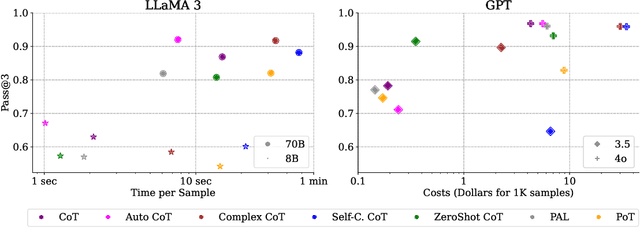Benchmarking Large Language Models for Math Reasoning Tasks
Paper and Code
Aug 20, 2024



The use of Large Language Models (LLMs) in mathematical reasoning has become a cornerstone of related research, demonstrating the intelligence of these models and enabling potential practical applications through their advanced performance, such as in educational settings. Despite the variety of datasets and in-context learning algorithms designed to improve the ability of LLMs to automate mathematical problem solving, the lack of comprehensive benchmarking across different datasets makes it complicated to select an appropriate model for specific tasks. In this project, we present a benchmark that fairly compares seven state-of-the-art in-context learning algorithms for mathematical problem solving across five widely used mathematical datasets on four powerful foundation models. Furthermore, we explore the trade-off between efficiency and performance, highlighting the practical applications of LLMs for mathematical reasoning. Our results indicate that larger foundation models like GPT-4o and LLaMA 3-70B can solve mathematical reasoning independently from the concrete prompting strategy, while for smaller models the in-context learning approach significantly influences the performance. Moreover, the optimal prompt depends on the chosen foundation model. We open-source our benchmark code to support the integration of additional models in future research.
 Add to Chrome
Add to Chrome Add to Firefox
Add to Firefox Add to Edge
Add to Edge